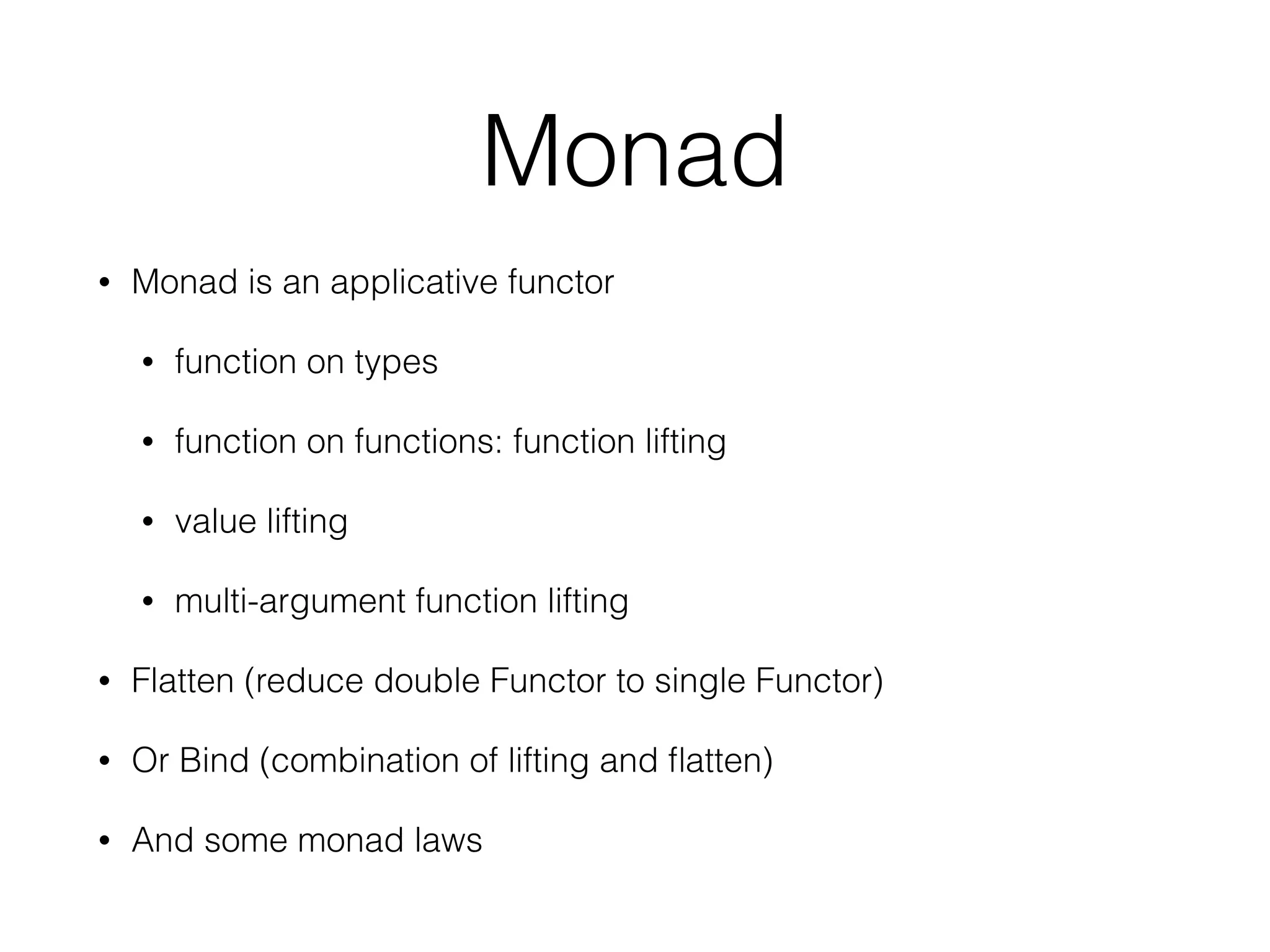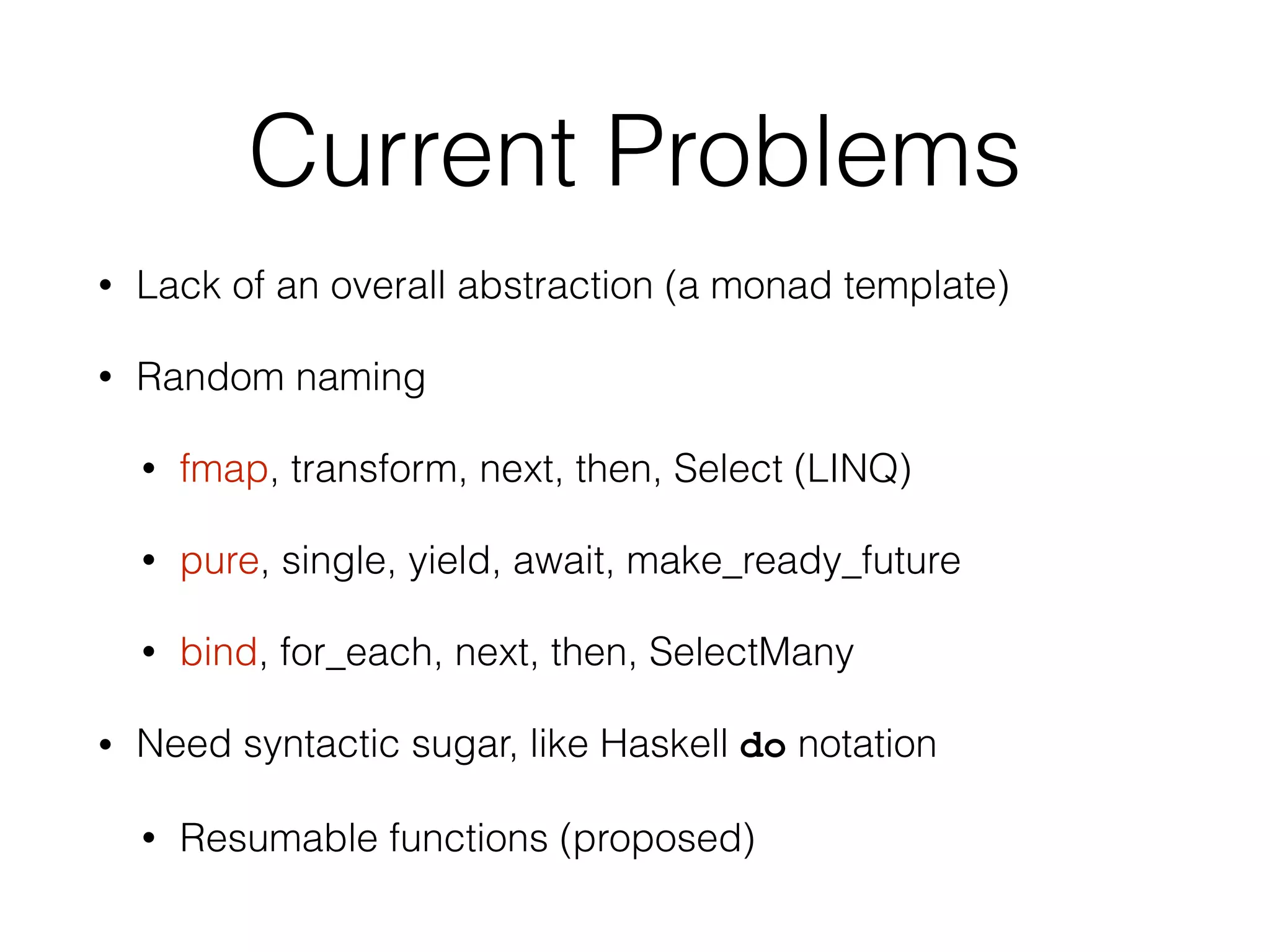The document discusses re-discovering monads in C++ by illustrating various data handling techniques such as smart pointers, lazy processing, and transformations with views. It emphasizes a declarative approach to programming, allowing for improved separation of concerns through lazy evaluation and higher-order functions, ultimately presenting monads as a natural abstraction for managing asynchronous and stateful computations. Key concepts include applicative functors, future handling, and the potential for a more unified syntactic structure in C++ for better functional programming support.

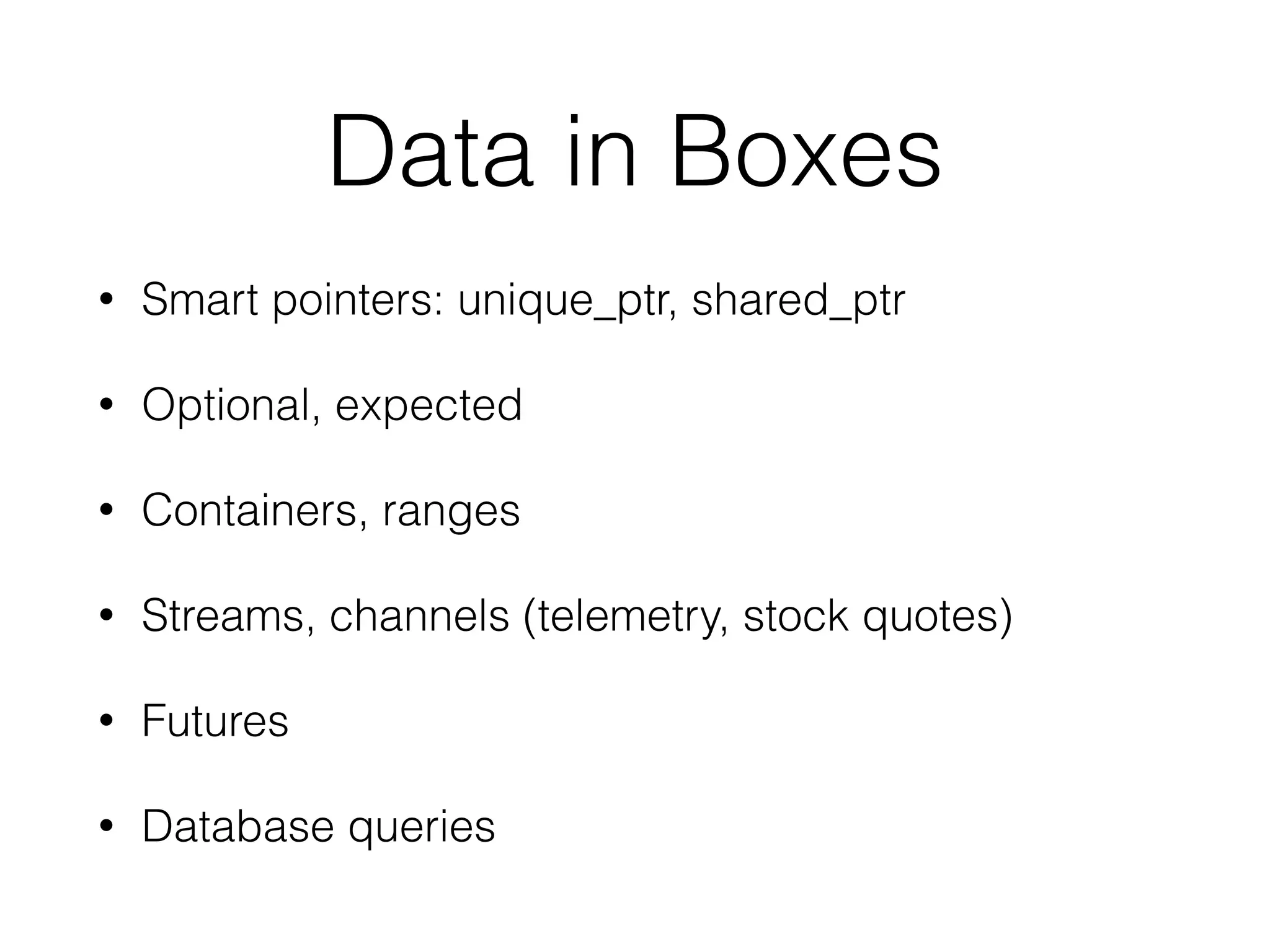
![In and Out of Boxes
• Common patterns in data processing
• Extract data from box
• Process it
• Put it back in a box
for (int i = 0; i < len; ++i)
w.push_back(f(v[i]));](https://image.slidesharecdn.com/rediscoveringmonads-141202052059-conversion-gate02/75/Bartosz-Milewski-Re-discovering-Monads-in-C-3-2048.jpg)
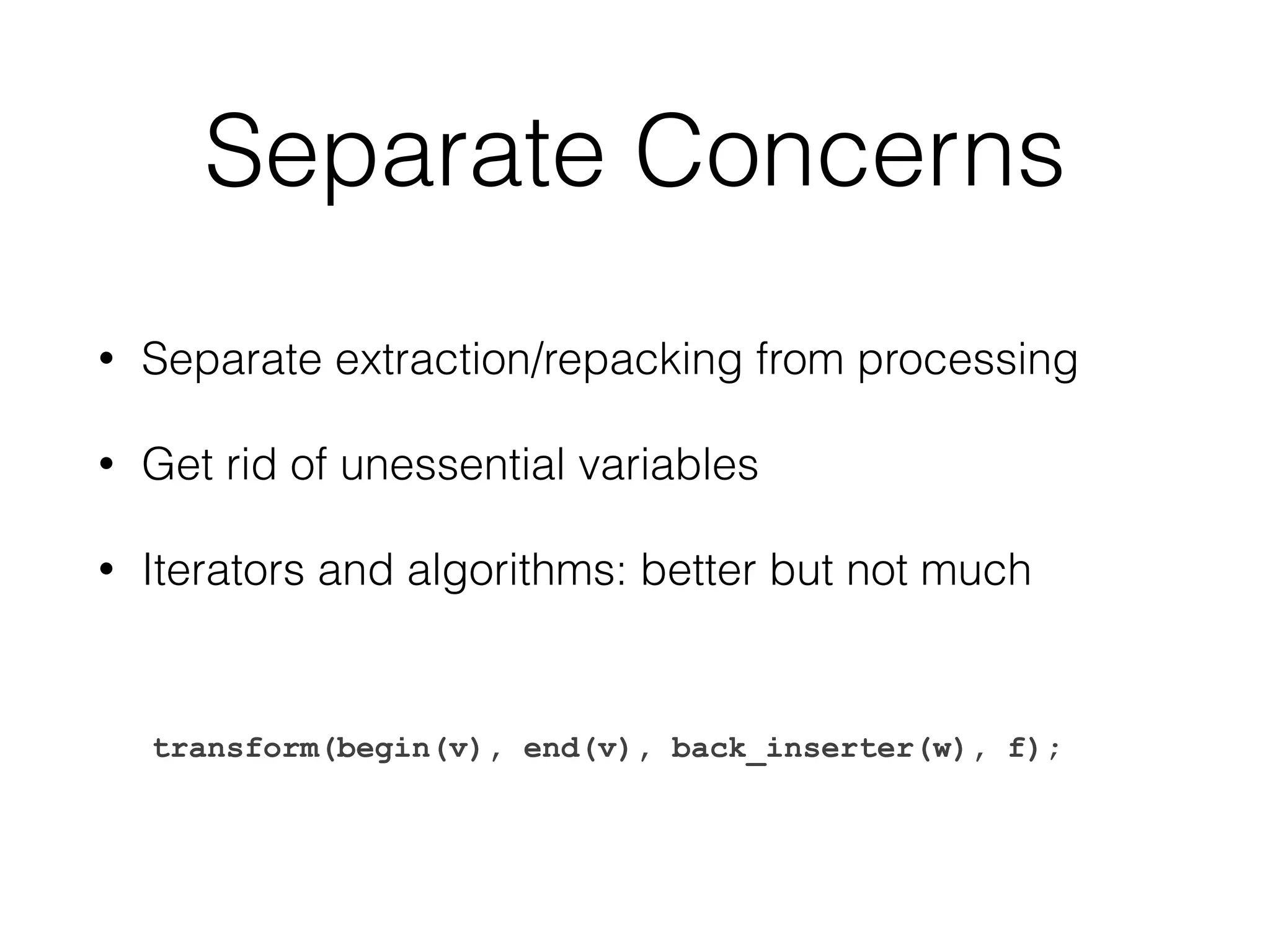
{return x*x;}) |
view::take(10), 0);](https://image.slidesharecdn.com/rediscoveringmonads-141202052059-conversion-gate02/75/Bartosz-Milewski-Re-discovering-Monads-in-C-5-2048.jpg)
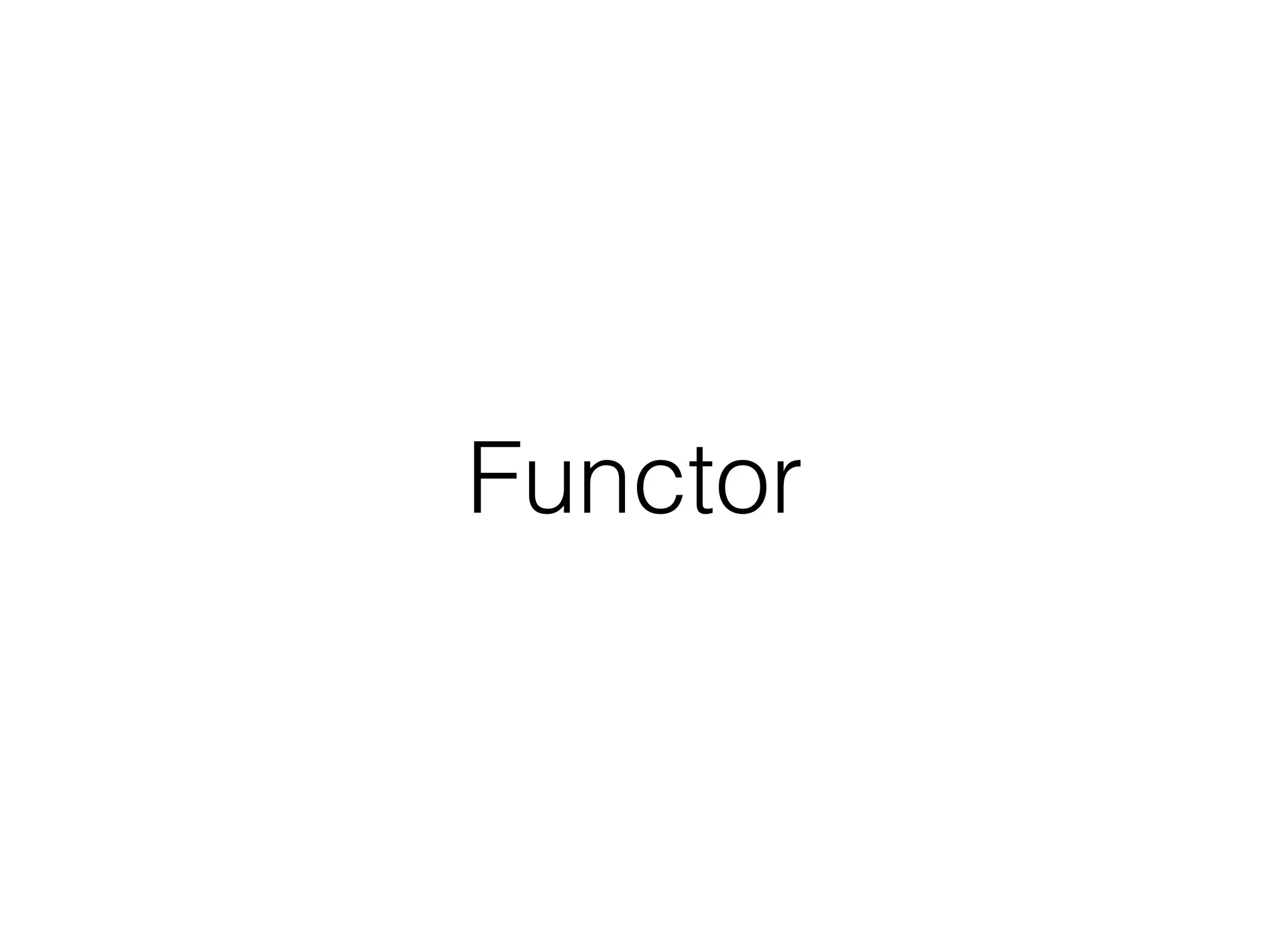
{return x*x;}
• Lift it using view::transform
view::transform([](int x){return x*x;})
• Lifted function acts on ranges of items {1, 2, 3, 4, …}
view::iota(1) |
view::transform([](int x){return x*x;})
• Returns a range of items {1, 4, 9, 16, …}](https://image.slidesharecdn.com/rediscoveringmonads-141202052059-conversion-gate02/75/Bartosz-Milewski-Re-discovering-Monads-in-C-7-2048.jpg)
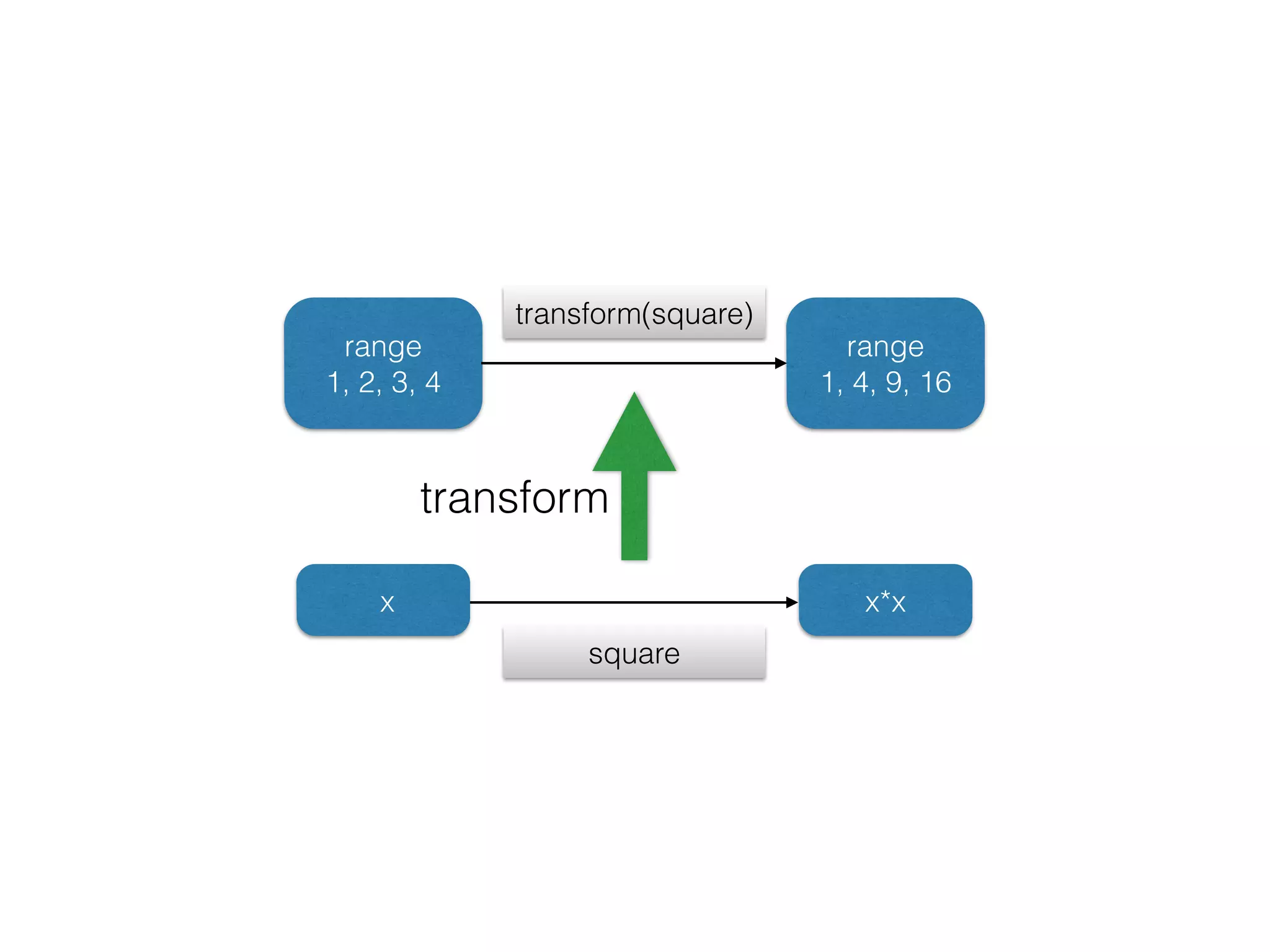
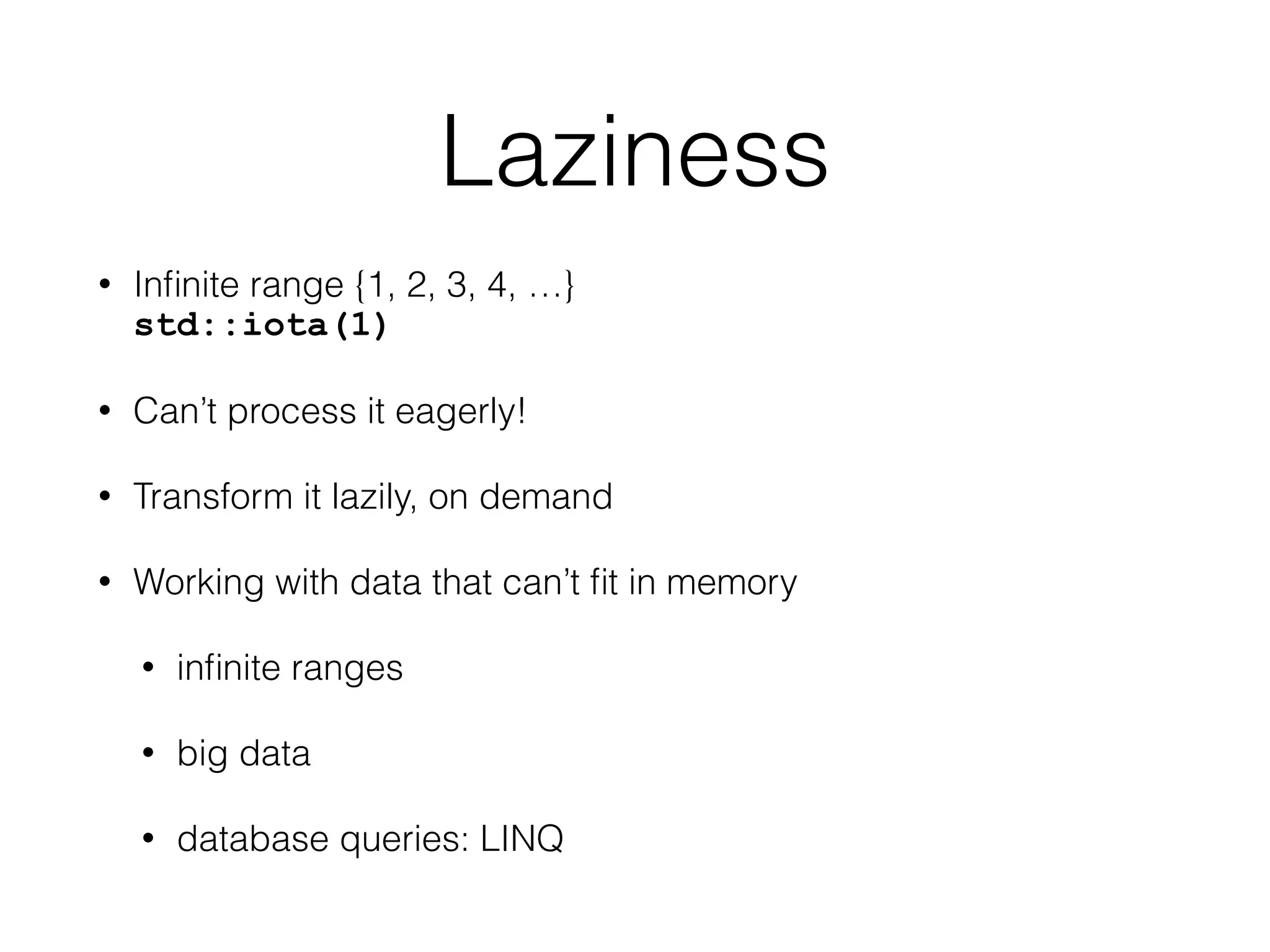
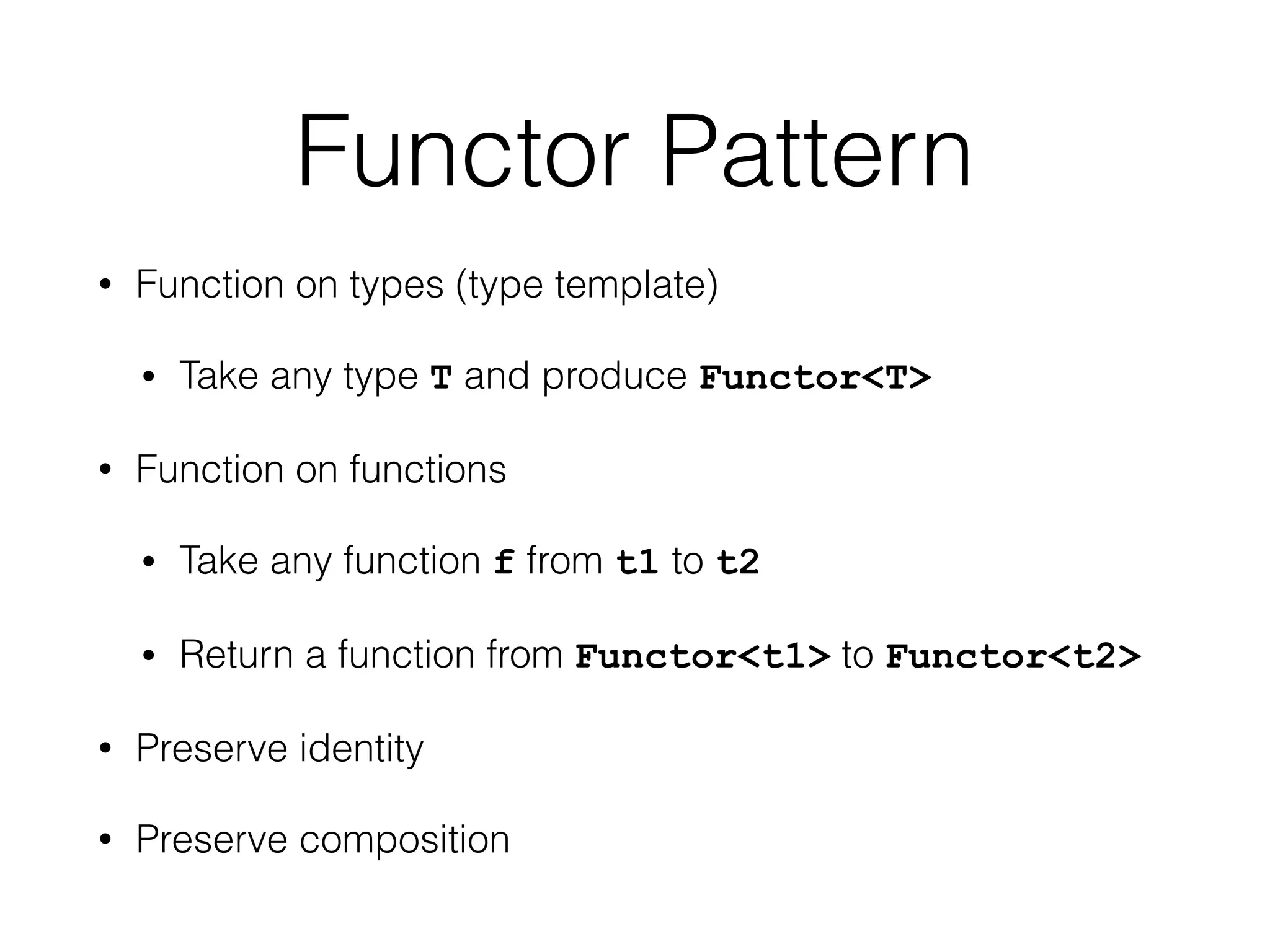
{return x*x;}) |
view::take(10)](https://image.slidesharecdn.com/rediscoveringmonads-141202052059-conversion-gate02/75/Bartosz-Milewski-Re-discovering-Monads-in-C-11-2048.jpg)
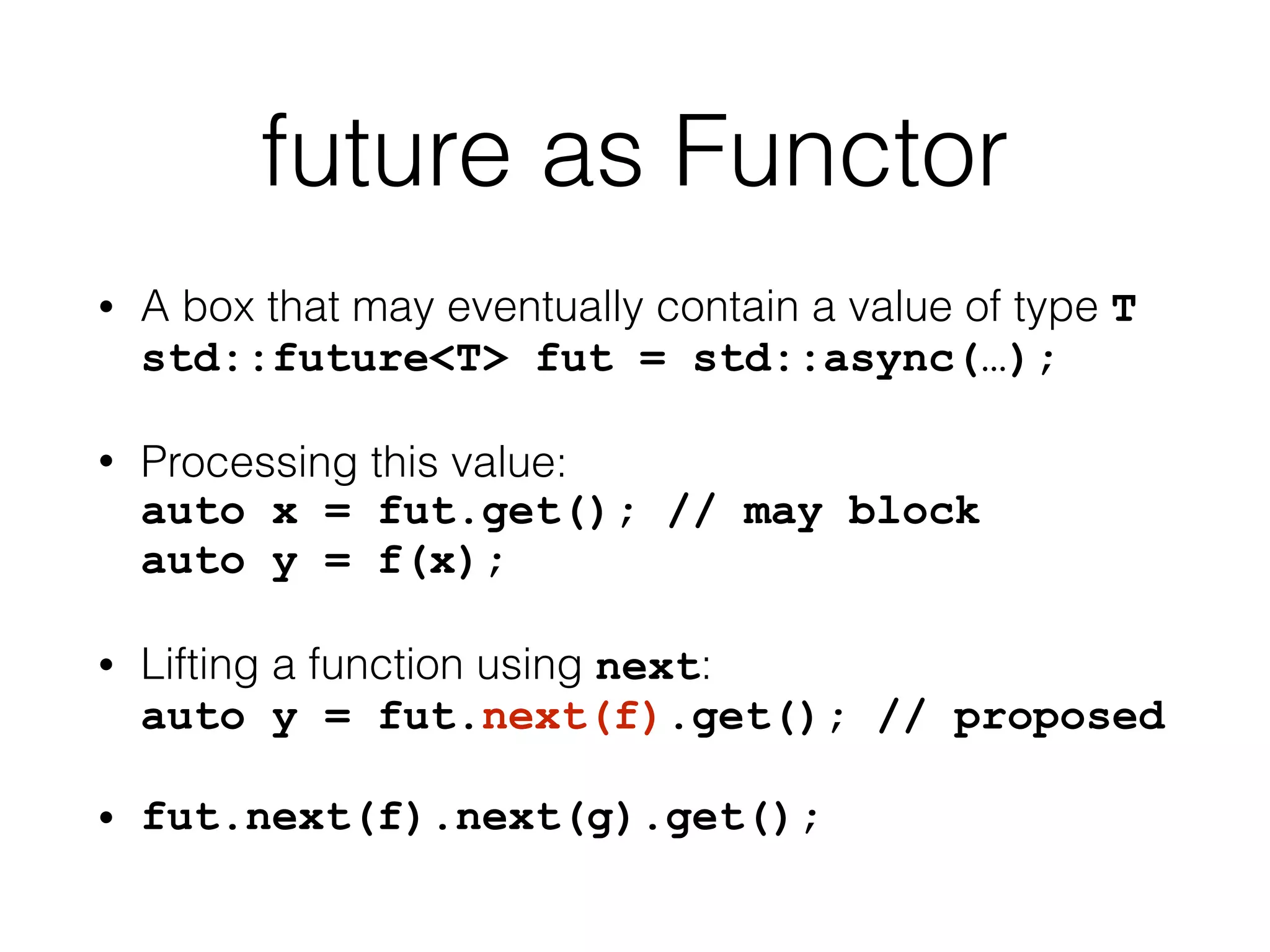

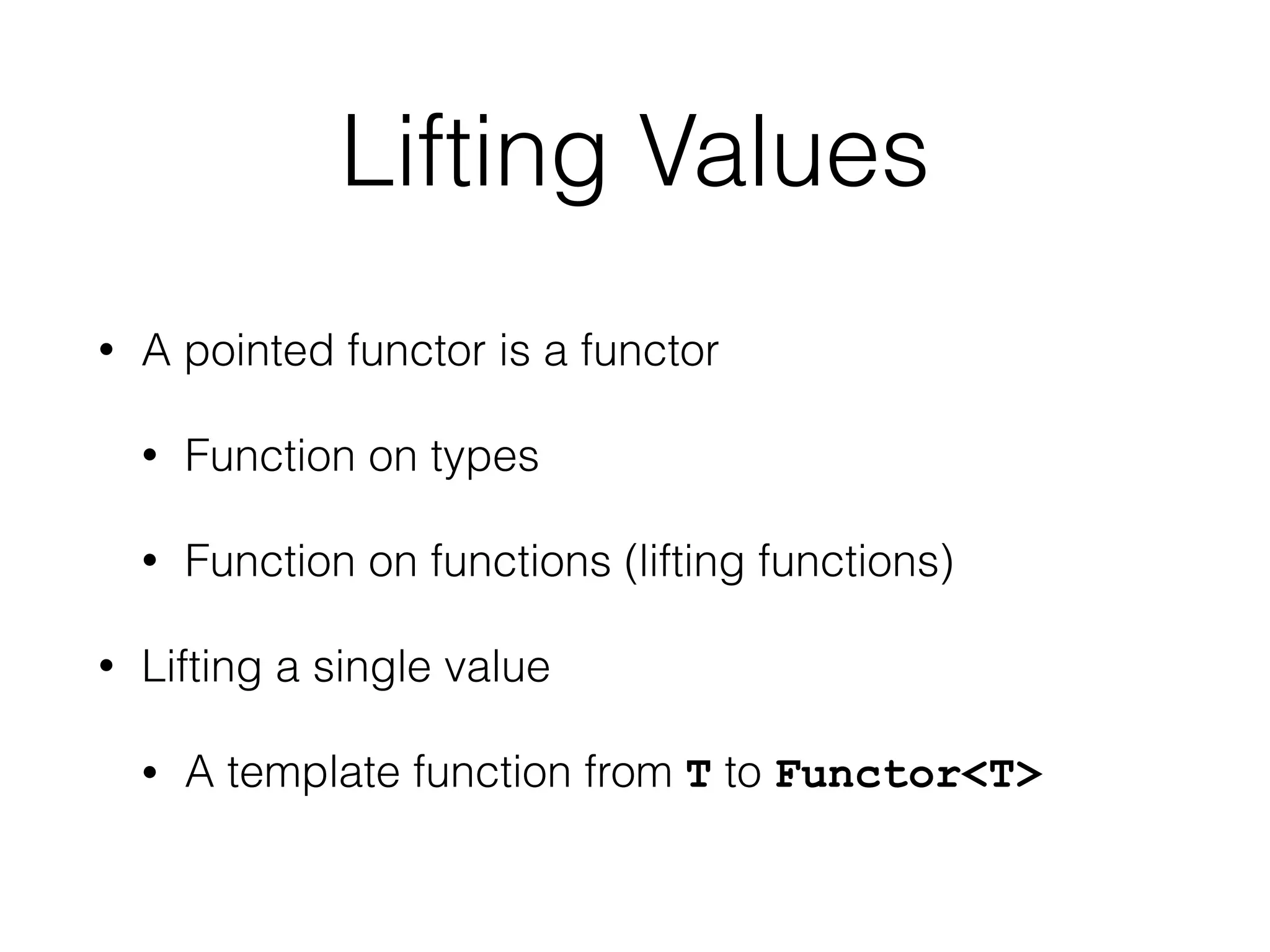
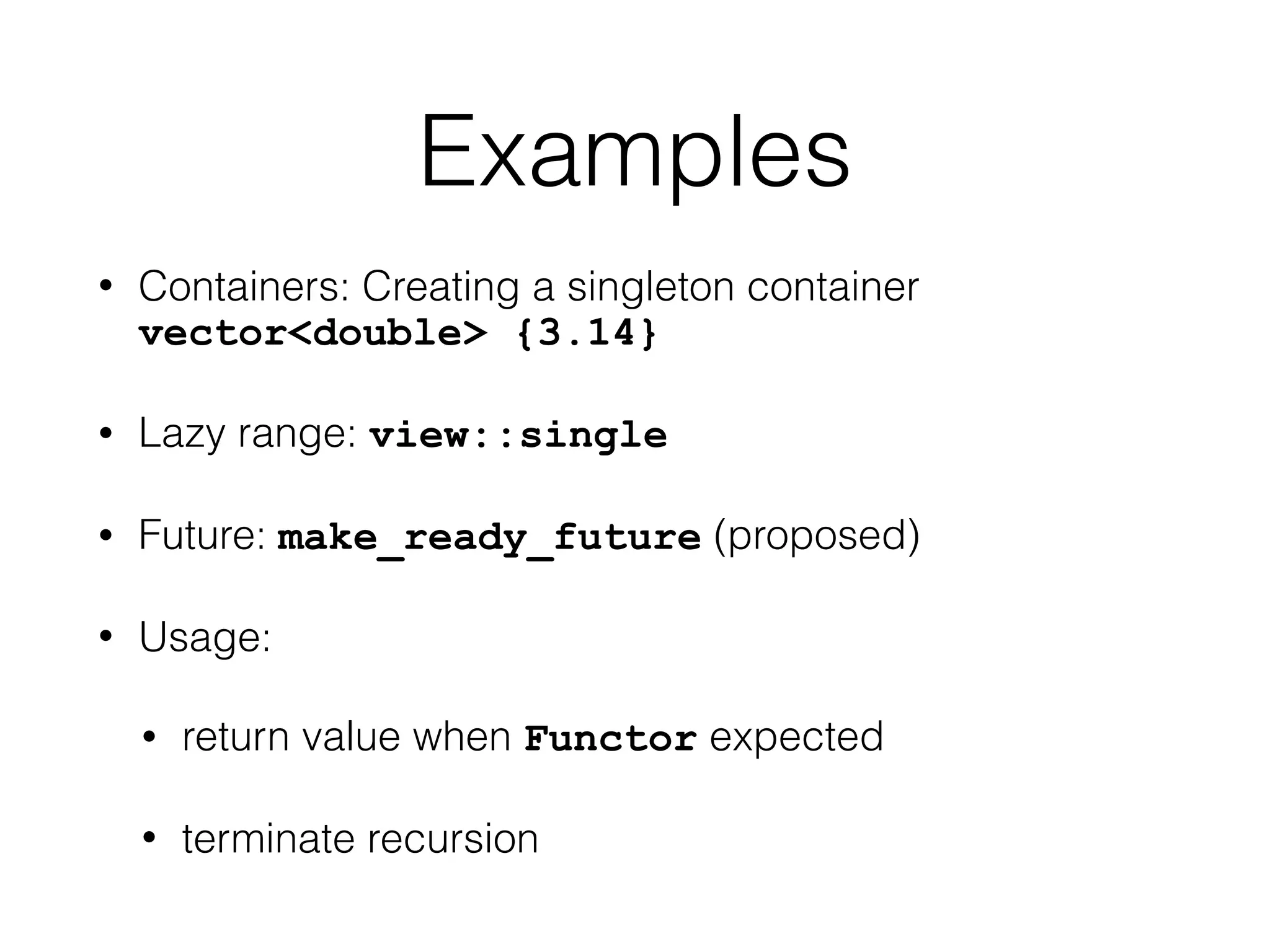
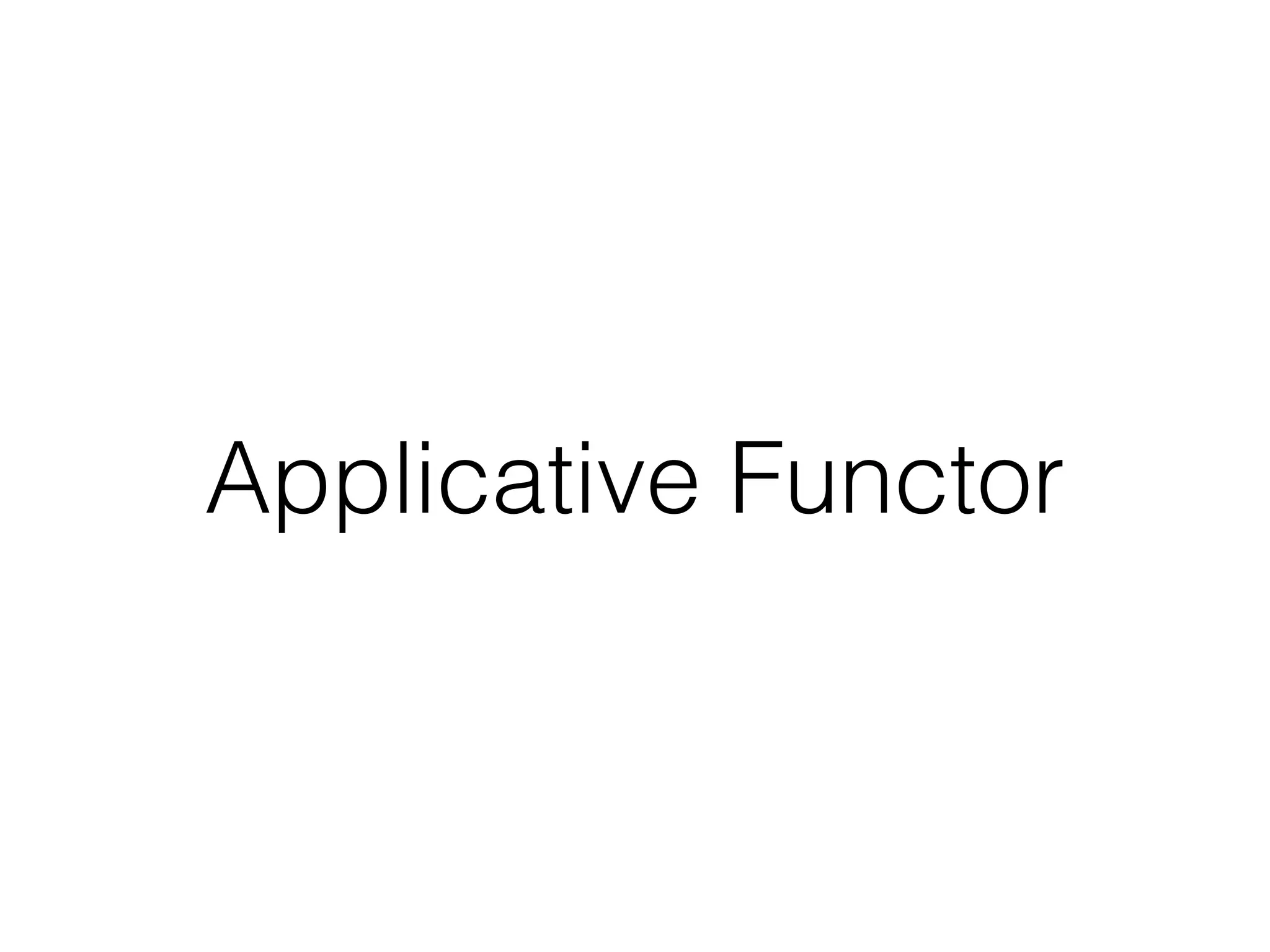
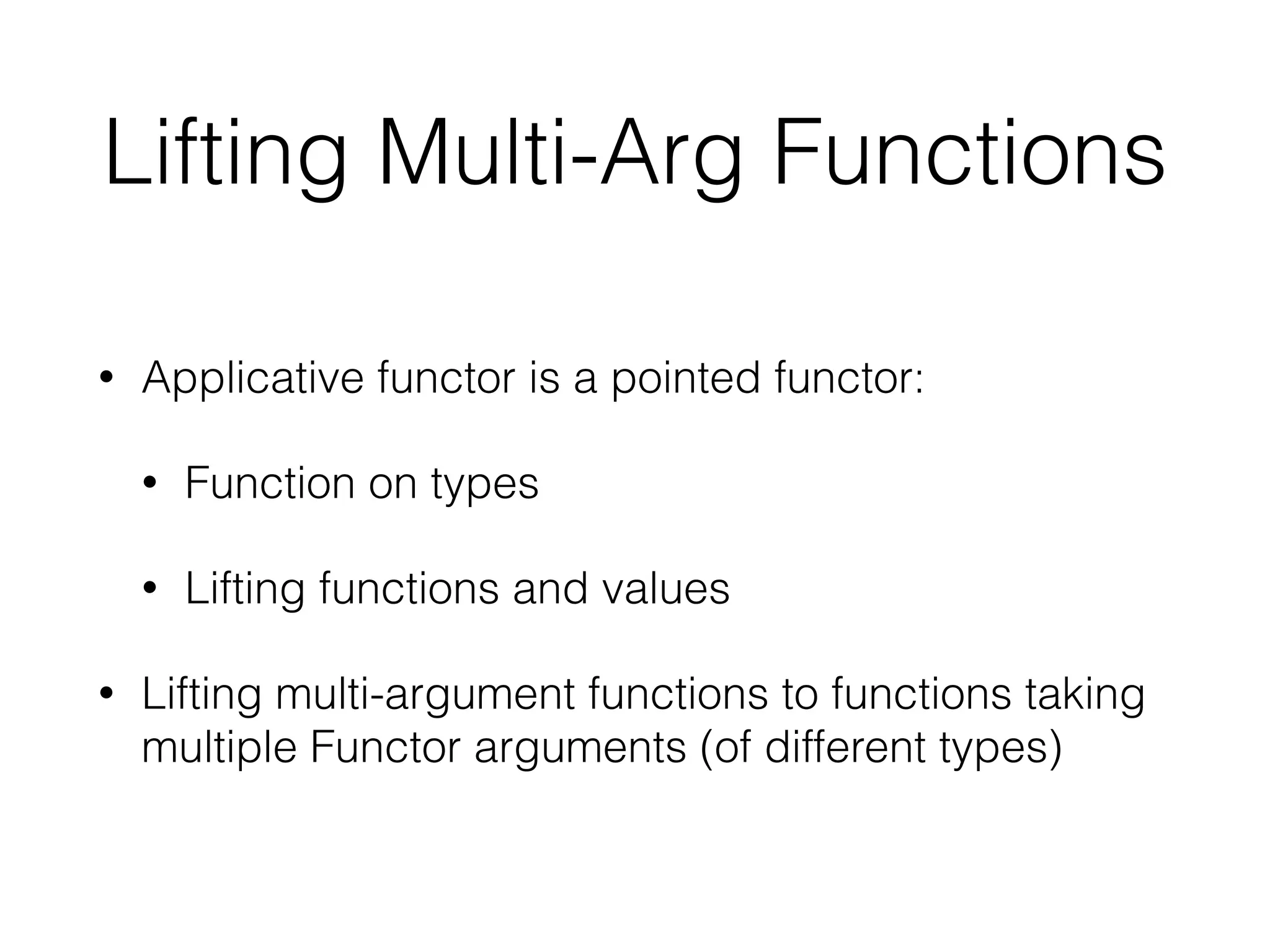
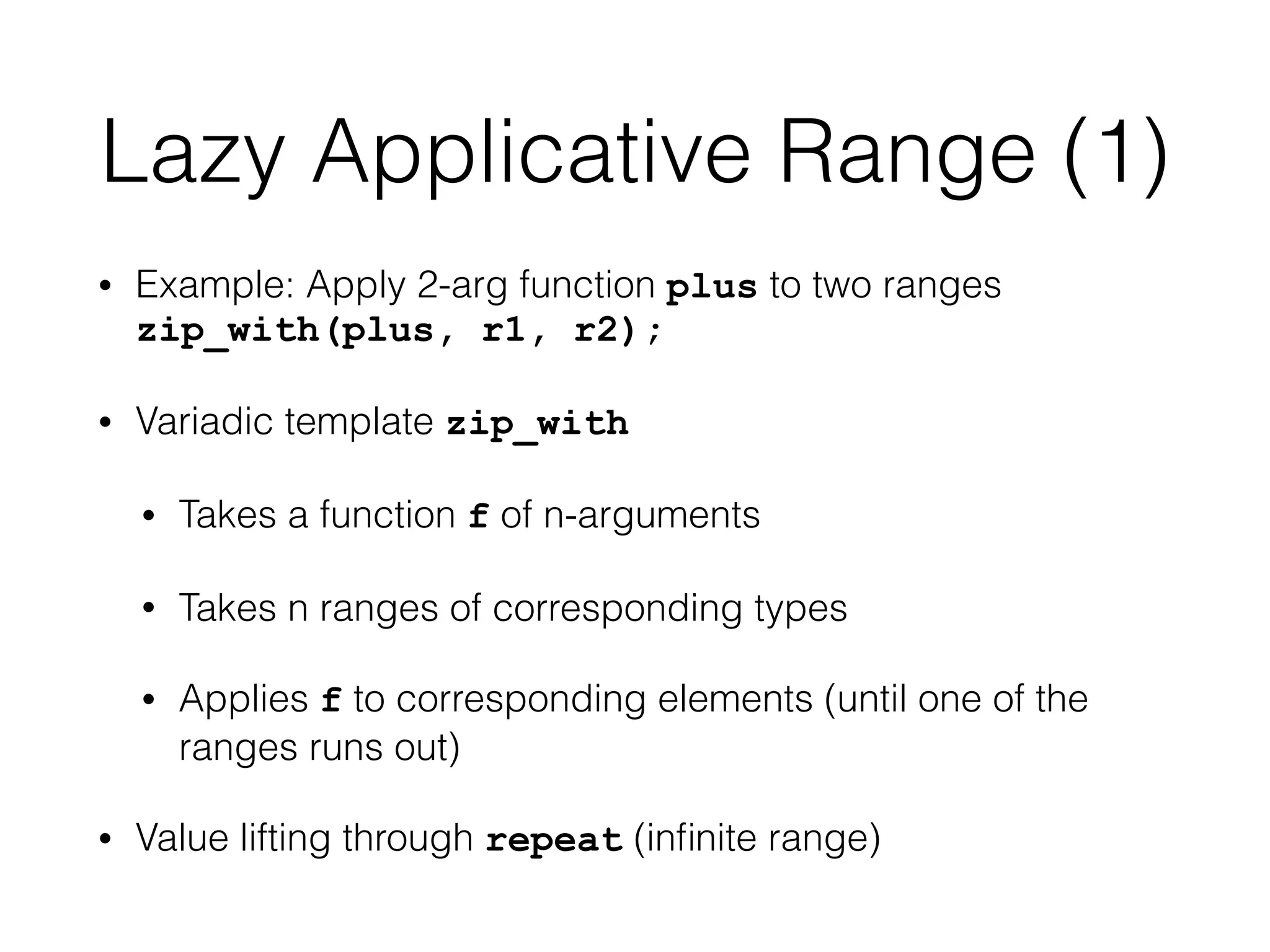
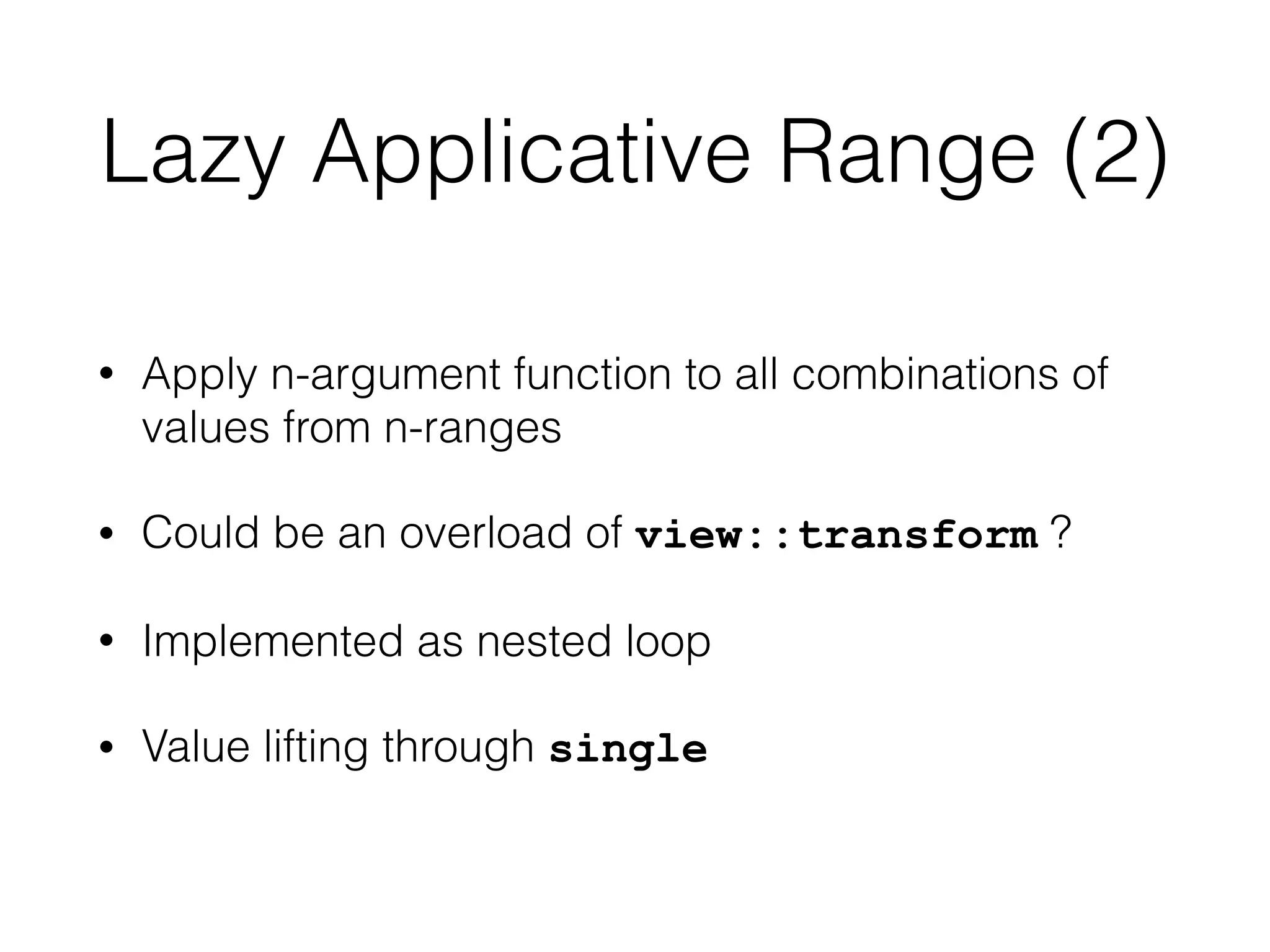
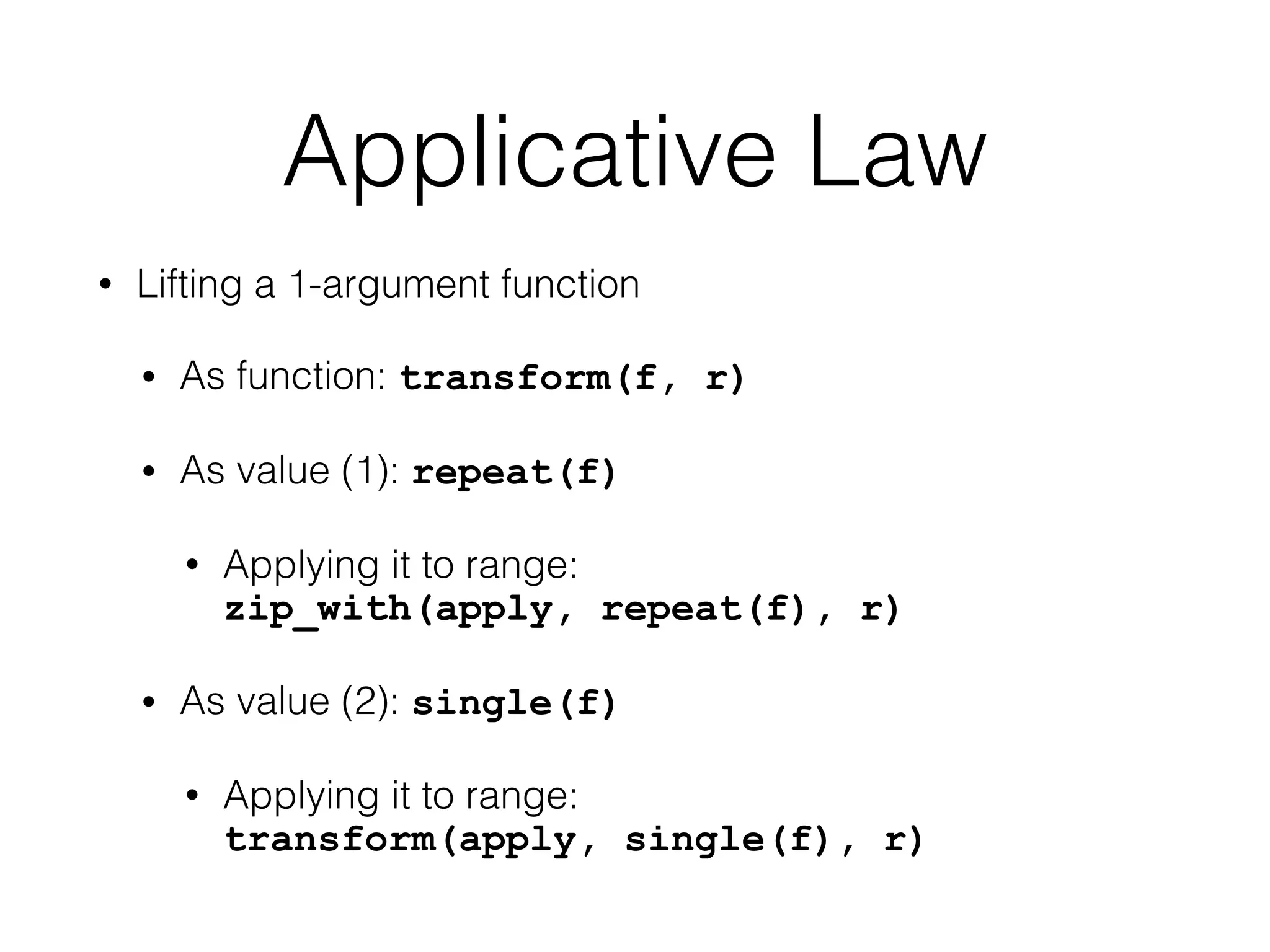
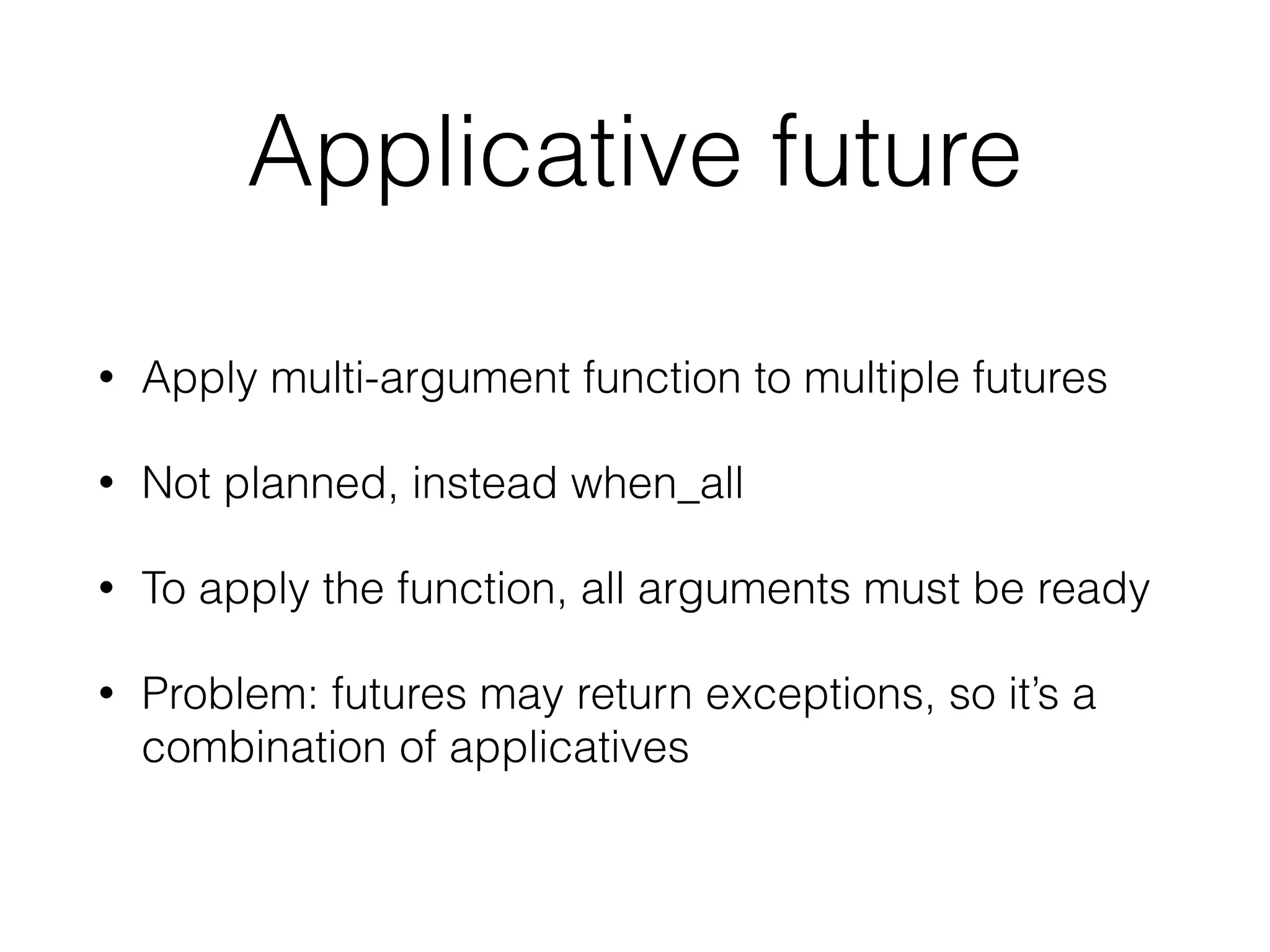


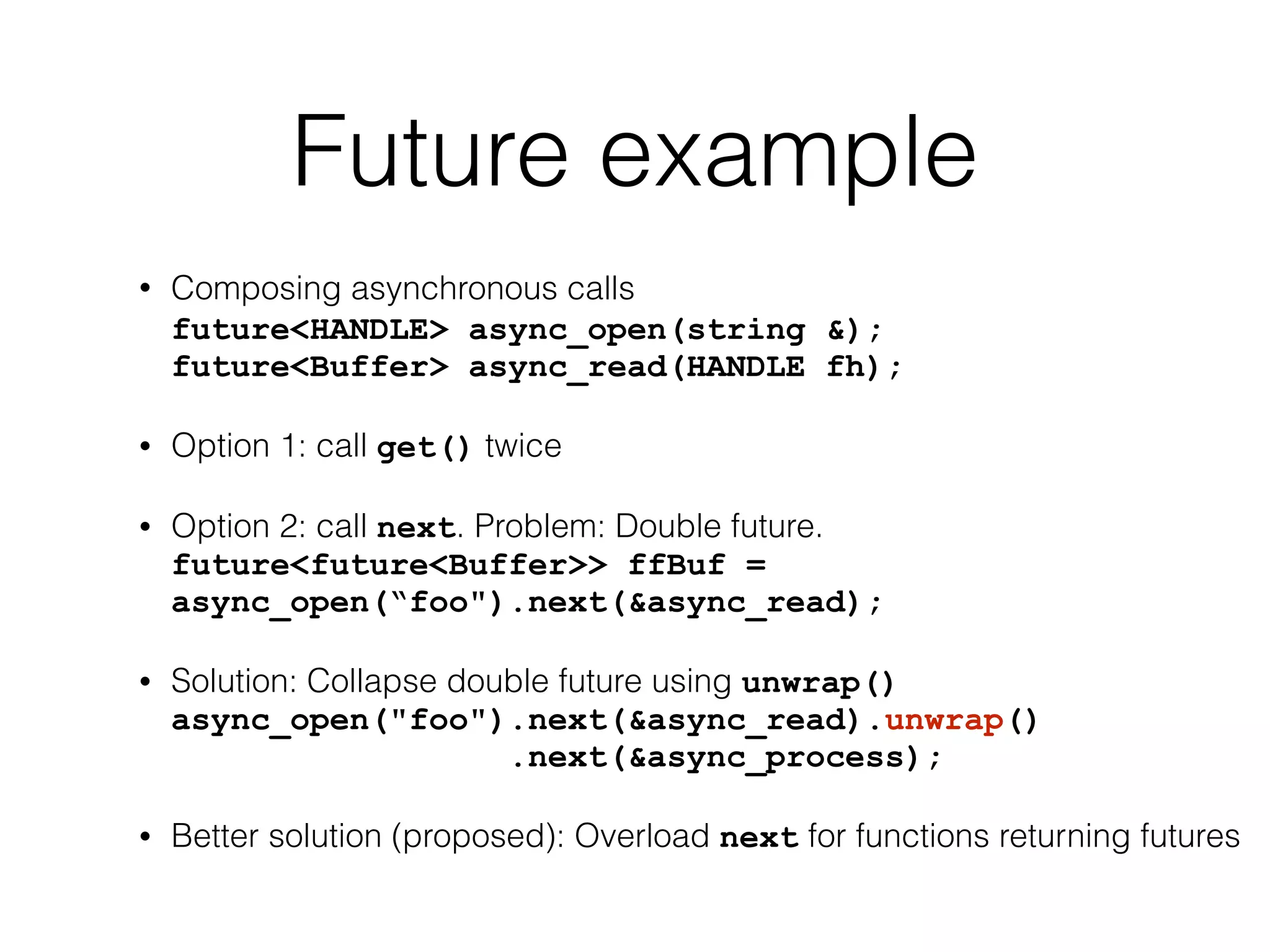
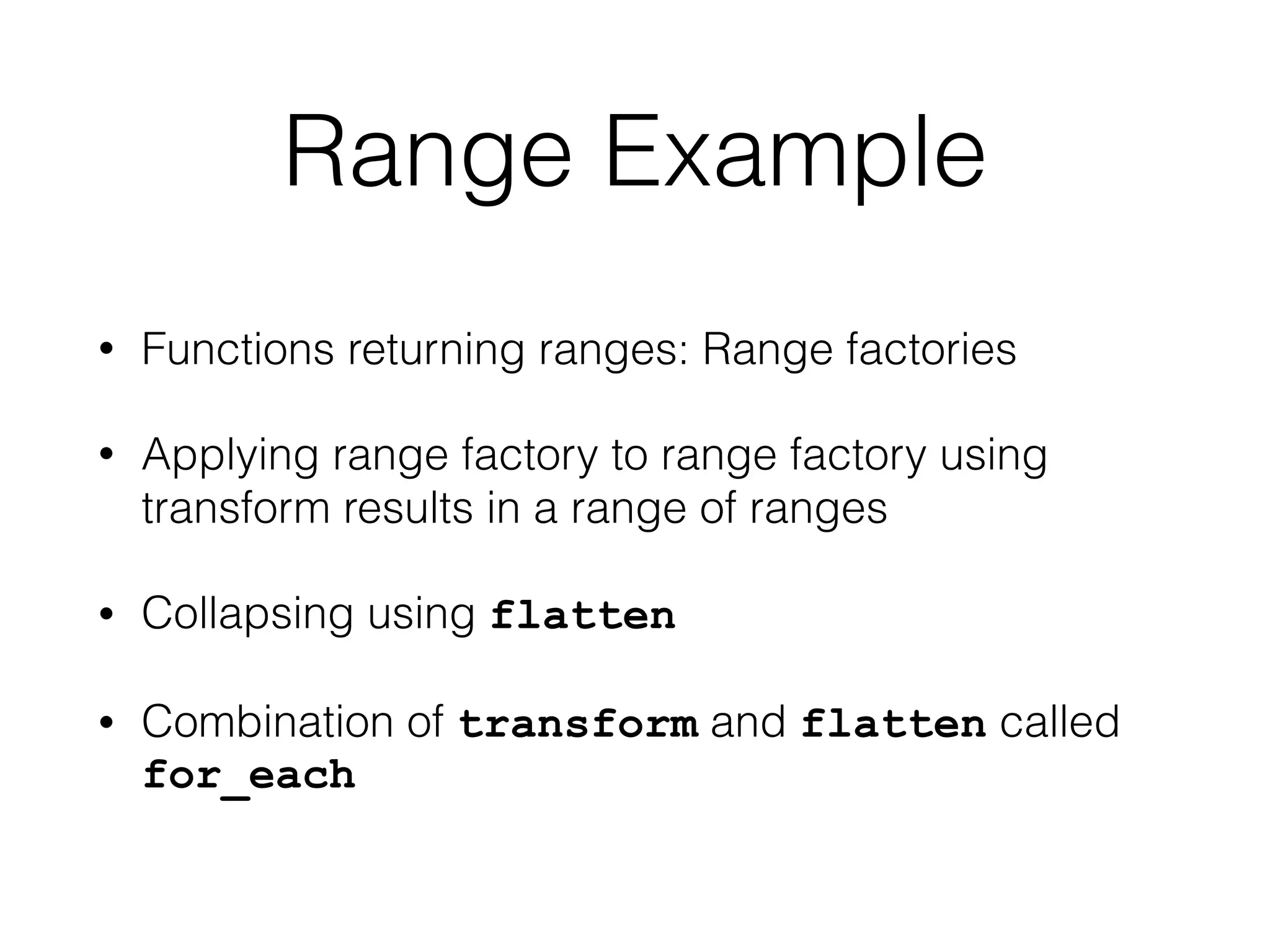
 {
return for_each(ints(1, z), [=](int x) {
return for_each(ints(x, z), [=](int y) {
return yield_if(x*x + y*y == z*z,
std::make_tuple(x, y, z));
});
});
});
• yield is the same as single inside for_each
• yield_if is conditional yield (monad plus)](https://image.slidesharecdn.com/rediscoveringmonads-141202052059-conversion-gate02/75/Bartosz-Milewski-Re-discovering-Monads-in-C-26-2048.jpg)
